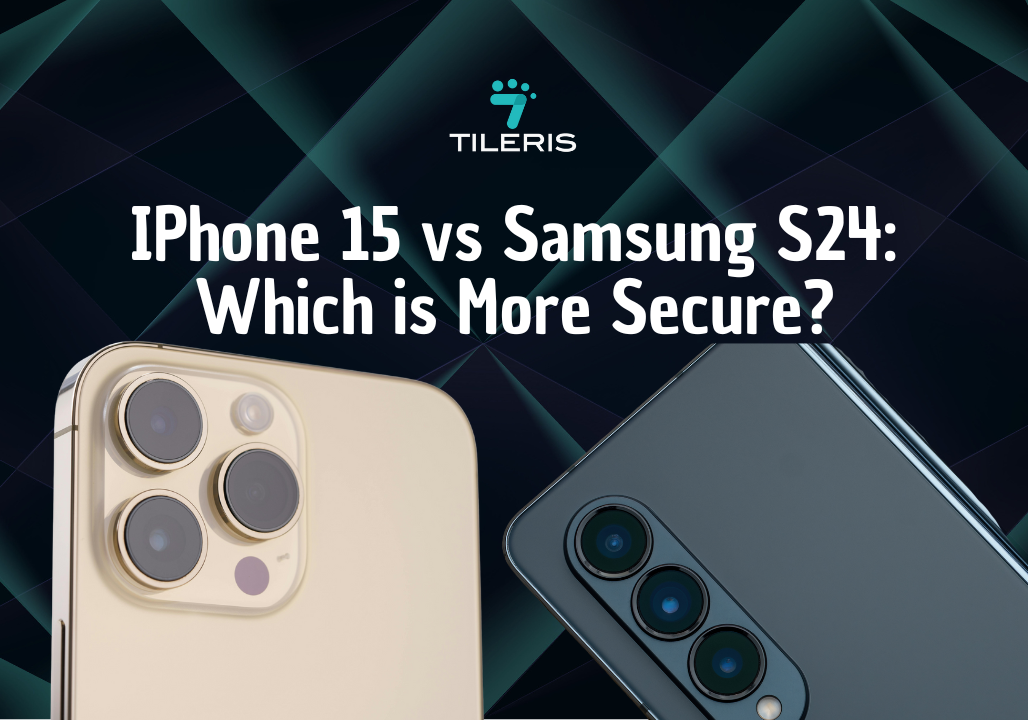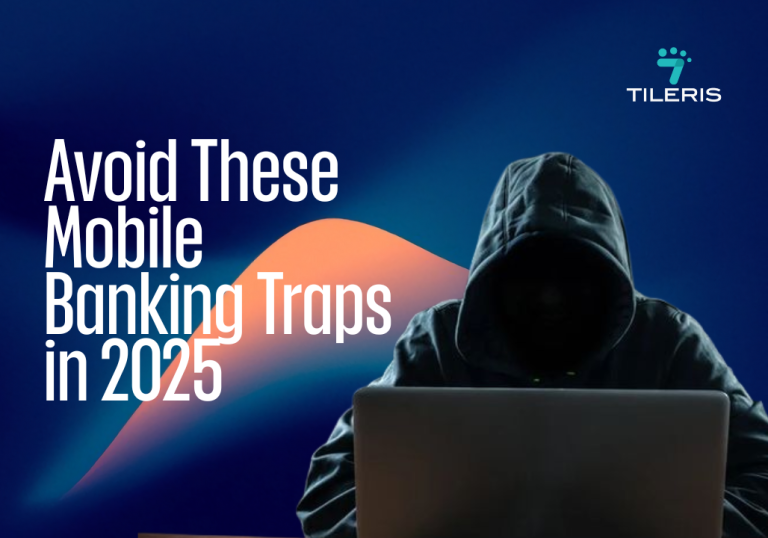IPhone 15 vs Samsung S24: Which is More Secure?
Introduction
In today’s hyper-connected world, our smartphones are far more than just communication tools; they are repositories of our most sensitive personal and professional data. From banking apps and health records to private messages and location histories, the information stored on our devices is invaluable. Consequently, the security of our smartphones has become a paramount concern for consumers. When choosing a new flagship device, security features often take a backseat to camera quality or screen resolution, but they are undeniably crucial. This article aims to provide a comprehensive comparison of the security features of two of the leading smartphones on the market: the iPhone 15 vs Samsung S24.
Security Features
To provide an accurate and up-to-date comparison, extensive research was conducted on the security frameworks, policies, and implementations of both the iPhone 15 (running iOS 18/19, typical for mid-2025) and the Samsung S24 (running Android 14/15 with One UI 6/7).
Here’s a breakdown of the key areas investigated:
- Software Updates and Security Patches:
- iPhone 15: Apple’s centralized control over both hardware and software allows for consistent, timely, and long-term iOS updates. iPhone 15 is expected to receive updates for 5-6+ years.
- Samsung S24: Samsung has committed to an impressive “7 years of OS upgrades and 7 years of security updates” for the S24 series, a significant improvement for Android devices. Updates are managed by Samsung and Google, sometimes leading to slightly longer rollout times than Apple’s direct approach.
- Biometric Authentication Methods:
- iPhone 15: Primarily relies on Face ID, a sophisticated 3D facial recognition system powered by the TrueDepth camera (dot projector, flood illuminator, infrared camera). It creates a detailed 3D map of the user’s face, making it highly resistant to spoofing with photos or masks and integrating with Apple’s Secure Enclave.
- Samsung S24: Offers both ultrasonic in-display fingerprint scanning and 2D camera-based facial recognition. While the ultrasonic fingerprint scanner is generally considered highly secure and fast, the 2D facial recognition is less robust than Face ID, as it can potentially be fooled by sophisticated photos or videos (though Samsung often warns users of this limitation for sensitive transactions).
- Encryption Methods:
- iPhone 15: Employs hardware-based encryption for all data at rest on the device, managed by the Secure Enclave. Data is encrypted using strong cryptographic keys derived from the user’s passcode and hardware unique keys. iCloud data also offers extensive encryption, with many categories supporting end-to-end encryption (E2EE) when Advanced Data Protection is enabled.
- Samsung S24: Utilizes File-Based Encryption (FBE), a standard Android feature, with strong cryptographic algorithms. Samsung’s Knox security platform adds additional hardware-backed security layers, including a secure boot process and real-time kernel protection. Enhanced Data Protection for Samsung Cloud on S24 offers E2EE for backed-up data.
- App Security and Review Processes:
- iPhone 15 (Apple App Store): Apple maintains a highly stringent and manual app review process. Every app and update is reviewed by a human team to ensure compliance with strict guidelines regarding privacy, security, and functionality, aiming to prevent malware and protect user data. App Tracking Transparency (ATT) gives users granular control over app tracking.
- Samsung S24 (Google Play Store & Galaxy Store): The Google Play Store uses Google Play Protect, an automated system that scans billions of apps daily for malware and suspicious behavior, both before and after installation. While comprehensive, it’s an automated system and its review process is generally considered less stringent than Apple’s. Samsung’s Galaxy Store also has a review process, but it is less frequently used than the Play Store. Android’s open nature allows for sideloading apps from third-party sources, which increases potential risk if users aren’t careful.
- Network Security Protocols:
- Both devices support modern Wi-Fi security protocols like WPA3 Personal and Enterprise for robust wireless encryption. They also support secure cellular network connections (5G, LTE) and implement strong TLS/SSL protocols for secure web Browse and communication.
- iPhone 15: Emphasizes privacy features like Private Wi-Fi Address (MAC address randomization) to prevent tracking across networks and iCloud Private Relay (for iCloud+ subscribers) which routes internet traffic through two separate relays, obscuring the user’s IP address.
- Samsung S24: Offers features like Secure Wi-Fi (a built-in VPN for public networks) and Auto Blocker, which can prevent harmful commands from entering via USB ports in public charging stations, a unique hardware-level network security enhancement.
Comparison of Security Features
Let’s break down how the iPhone 15 and Samsung S24 stack up against each other across key security dimensions:
| Feature Category | iPhone 15 (iOS) | Samsung Galaxy S24 (Android/One UI) |
| Software Updates & Patches | Strength: Industry-leading consistency and longevity (5-6+ years of iOS updates), delivered directly by Apple. All compatible devices receive updates simultaneously. Critical patches are pushed very quickly. | Strength: Significant commitment with “7 years of OS upgrades and 7 years of security updates,” matching or exceeding Apple’s longevity. Timely monthly security patches from Google and Samsung. |
| Biometric Authentication | Strength: Face ID (3D facial scanning) is considered the gold standard due to its TrueDepth camera system and integration with the Secure Enclave, making it highly secure against spoofing. | Strength: Highly secure and convenient ultrasonic in-display fingerprint scanner. Weakness: 2D facial recognition is less secure than Face ID and not recommended for high-security applications like banking. |
| Encryption | Strength: Deeply integrated hardware-based encryption for all data at rest. Robust key management within the Secure Enclave. Advanced Data Protection for iCloud offers comprehensive end-to-end encryption for cloud data. | Strength: Strong File-Based Encryption (FBE) by default. Samsung Knox adds hardware-level security, secure boot, and real-time kernel protection. Enhanced Data Protection for Samsung Cloud provides E2EE for backups. |
| App Security & Review | Strength: Extremely stringent, manual App Store review process for all apps and updates, significantly reducing malware risk. App Tracking Transparency gives users control over data sharing. App Privacy Reports offer transparency on app data access. | Strength: Google Play Protect scans billions of apps (pre and post-installation) for malware. Samsung’s Auto Blocker can prevent installations from unauthorized sources. Weakness: More open ecosystem means a higher theoretical risk from sideloaded apps. Play Store review is largely automated. |
| Network Security Protocols | Strength: Full support for WPA3. Advanced privacy features like Private Wi-Fi Address and iCloud Private Relay enhance anonymity on public networks. | Strength: Full support for WPA3. Unique hardware-based features like Auto Blocker for USB port security. Secure Wi-Fi (built-in VPN for public networks) offers an additional layer of protection. |
| Additional Features | iMessage Contact Key Verification, Security Keys for Apple ID, Safety Check (for sharing permissions), Crash Detection, Emergency SOS via Satellite. Strong emphasis on on-device processing for privacy (e.g., Face ID, Siri). | Samsung Knox Vault (dedicated security chip for critical data), Message Guard (zero-click exploit protection for messaging apps), Identity Check (biometric re-auth for security settings in unfamiliar locations), Security Delay (time buffer for biometric reset). |
| Ecosystem Control | Strength: Closed ecosystem (hardware and software fully controlled by Apple) provides tight security integration and faster, more consistent vulnerability patching. Weakness: Less flexibility for advanced users who want to deeply customize or sideload. | Strength: More open ecosystem offers flexibility for customization. Weakness: Fragmentation can lead to varying update speeds across Android devices (though Samsung has improved significantly). Sideloading requires user vigilance. |
Evaluating Security Performance
Evaluating real-world security performance often relies on a combination of vulnerability disclosures, independent security audits, and expert consensus. Both Apple and Samsung (with Google’s Android) continuously invest heavily in security research and rapid patching.
- Real-World Testing and Results:
- iOS (iPhone 15): Due to its closed nature, iOS typically sees fewer widespread malware attacks. When vulnerabilities are found (often by sophisticated researchers or state-sponsored actors targeting high-value individuals), Apple is generally very quick to patch them globally. The “walled garden” approach of the App Store significantly reduces the chance of users inadvertently downloading malicious apps.
- Android (Samsung S24): Android, being an open-source platform with a larger market share and diverse manufacturers, historically faces a higher volume of malware attempts. However, Google Play Protect and Samsung’s Knox have significantly mitigated this. The S24’s “7 years of updates” commitment means it will receive critical security patches for an extended period, which is a massive leap forward for Android security longevity. Samsung’s proactive anti-theft features (like Identity Check and Security Delay) directly address real-world theft scenarios where a thief might gain initial access to an unlocked phone.
- Expert Reviews and Ratings:
- Security experts generally acknowledge that Apple’s tightly controlled ecosystem and rigorous App Store review give it an inherent advantage in preventing broad-scale malware incidents.
- However, Android has made significant strides, particularly with Google’s regular security bulletins and enhanced features in newer Android versions, coupled with manufacturers like Samsung committing to longer update cycles and integrating hardware-backed security. Some experts note that Android’s proactive AI-driven scam detection (e.g., Google’s on-device AI for scam calls/messages) can offer protections that iOS currently lacks in its default apps.
- User Feedback and Experiences:
- User feedback often points to a perception of iPhones being “safer” due to fewer reported malware incidents and a simpler, more uniform security experience.
- Samsung S24 users benefit from the new robust anti-theft features introduced with One UI 7, which addresses direct feedback on how phones are stolen and accessed. Users appreciate the granular control over privacy settings on Android and Samsung’s added Knox features.
Analyzing Results
When analyzing the security profiles of the iPhone 15 and Samsung Galaxy S24, it becomes clear that both are highly secure devices, employing state-of-the-art technologies to protect user data. However, their security philosophies and implementations differ, leading to nuanced strengths.
- Which device has better security features:
- Edge to iPhone 15 for preventing broad malware and app-based threats: Apple’s closed ecosystem and stringent App Store review process create a highly secure “walled garden” that makes it extremely difficult for malicious apps to reach users or for system-wide malware to take hold. Face ID remains the most robust and spoof-resistant biometric authentication method available on a mass-market smartphone.
- Edge to Samsung S24 for proactive user-facing scam detection and anti-theft against sophisticated physical attacks: Samsung, backed by Google’s Android innovations, is leading in using on-device AI for real-time scam detection in calls and messages (a feature iOS currently lacks in its default apps). Samsung’s new anti-theft features (Identity Check, Security Delay) directly address sophisticated physical theft scenarios, providing crucial time buffers and biometric re-authentication for sensitive actions. The 7-year update policy is also a monumental win for long-term Android security.
- Why one device may be more secure than the other (depending on threat model):
- If your primary concern is avoiding malware from apps and general system exploits due to a more tightly controlled environment, the iPhone 15 typically offers a slightly safer default experience. Its uniform updates and stricter app vetting reduce the attack surface.
- If you’re concerned about sophisticated phishing scams, physical theft scenarios, or value granular control over permissions and privacy, the Samsung S24 (especially with its latest One UI 7 features) offers compelling proactive defenses and extended software support that makes it incredibly competitive. Knox and features like Message Guard provide deep-seated protection against zero-click exploits.
- Any potential security risks or concerns:
- iPhone 15: While highly secure, no system is impenetrable. High-value targets can still face sophisticated “zero-day” attacks. The perception of invincibility can sometimes lead to user complacency.
- Samsung S24: The open nature of Android still means users who sideload apps from untrusted sources or ignore updates can compromise their security. While Samsung’s update policy is excellent, historical Android fragmentation means timely updates are not universal across all Android manufacturers.
Conclusion
Both the iPhone 15 and the Samsung S24 are powerhouses of mobile technology, engineered with robust security measures to protect your data in 2025. There’s no single “most secure” answer, as their strengths cater to slightly different threat models and user preferences.
The iPhone 15 excels with its tightly controlled ecosystem, stringent App Store review, and industry-leading Face ID biometric authentication. This creates a highly secure, consistent, and user-friendly “walled garden” that significantly minimizes the risk of widespread malware and app-based exploits. For users who prioritize simplicity and a highly curated, secure software environment, the iPhone 15 remains an incredibly strong choice.
The Samsung Galaxy S24, powered by advancements in Android and Samsung’s formidable Knox platform, has emerged as a formidable security contender. Its commitment to 7 years of updates, hardware-backed security (Knox Vault), proactive AI-driven scam detection (e.g., Message Guard), and innovative anti-theft features (like Identity Check and Security Delay) directly address modern, real-world threats, including sophisticated physical attacks. For users who value flexibility, granular control over privacy, and cutting-edge proactive defenses against evolving scams and theft scenarios, the Galaxy S24 presents a compelling and increasingly secure alternative.
Recommendation
For the average user seeking maximum inherent protection with minimal fuss, who prioritizes a highly curated and tightly controlled software environment, the iPhone 15 holds a slight edge due to Apple’s holistic ecosystem control and App Store vetting.
However, for users who appreciate the flexibility of Android, demand long-term software support, and are particularly concerned about sophisticated physical theft or proactive scam detection, the Samsung Galaxy S24 stands as an equally secure and, in some specific areas, even more advanced option, especially with its latest anti-theft and AI-driven security enhancements.
To get started on fortifying your mobile security and securing your entire digital footprint, download our free Security Checklist at tileris.com today! And remember, for any cybersecurity challenge, big or small, our team of experts at Tileris is ready to assist you, providing tailored solutions to meet your specific needs.






